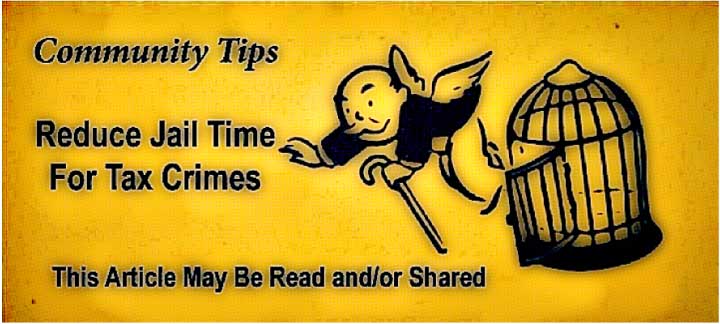Strategies To Lower Tax Crime Sentences
The Most Common Tax Crime is Tax Evasion
The most common tax crimes are tax evasion, which is specifically defined in 26 U.S.C. § 7201 as a failure to report taxes, reporting taxes inaccurately, or failing to pay taxes. To establish a case for tax evasion under, the government must prove each of the following beyond a reasonable doubt: that the taxpayer attempted to evade or defeat a tax or payment of a tax; an additional tax was due and owing; and the taxpayer acted willfully.
Underreporting Income
Underreporting income is one of the most common forms of tax evasion. Taxpayers may engage in underreporting income by telling the IRS they made less money than they actually made, or by claiming more deductions, credits, or exemptions than they really deserve. This type of tax evasion is most frequently used by self-employed individuals, sole proprietors, or people who deal primarily in cash transactions. Many instances of underreporting income can be detected by computer systems used by the IRS. If the IRS suspects a taxpayer of tax evasion via underreporting income, significant federal tax crime charges may apply.
How are The Federal Sentencing Guidelines Used to Determine the Sentence for Tax Crimes?
Federal Sentencing Guidelines provide advisory recommendations for sentencing of crimes. The government uses a figure called “tax loss” as the principal determinant in tax crime sentencing. The goal for the defendant is to get the tax loss number down to a lower number. In tax evasion, the government must prove tax due and owing; this amount is essentially equivalent to sentencing tax loss.
Unclaimed Deductions, Credits, or Exemptions May Help a Defendant Lower Their Sentence
The taxpayer may want to use unclaimed deductions, over-reported income, or unclaimed credits to counteract the government’s claims. Including these amounts can decrease the tax loss calculation, leading to a lower sentence for the taxpayer accused of tax evasion. Generally, the court should consider standard deductions and personal and dependent exemptions to which the taxpayer is entitled. However, courts used to disagree over whether the taxpayer should be allowed to use unclaimed amounts to reduce their tax loss at the sentencing phase. New guidelines have recently provided some clarity on this issue.
When Can Unclaimed Deductions, Credits, or Exemptions Be Used?
In April 2013, the U.S. Sentencing Commission amended its guidelines on unclaimed deductions and credits, found at U.S.S.G. § 2T1.1. Now, the guidelines state clearly that these unclaimed amounts can be considered in calculating tax loss, subject to certain requirements. First, the credit, deduction, or exemption must be one that was related to the tax offense and could have been claimed at the time the tax offense was committed. Second, the otherwise unclaimed credit, deduction, or exemption must be reasonably and practicably ascertainable. This simply means that the tax calculation must be reasonable, and not too complicated, for the court to perform. Third, the defendant must present information to support the credit, deduction, or exemption sufficiently in advance of sentencing to provide an adequate opportunity to evaluate whether it has sufficient indicia of reliability to support its probable accuracy.
In addition, the guidelines state that the court will not include amounts given to third parties in an attempt to violate laws, such as “under the table” payments made to employees.
How a Tax Attorney Can Help
Tax crimes are extremely serious. If you have been accused of tax evasion or another infraction by the IRS, a knowledge tax attorney is essential to protect your rights.
The Tax Lawyer - William D Hartsock offers free consultations with the full benefit and protection of attorney client privilege. Call today.



Comments (0)